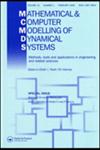基于契约的混合回收模式系统动力学建模——以中国电子垃圾线上与线下回收为例
IF 1.8
4区 数学
Q3 COMPUTER SCIENCE, INTERDISCIPLINARY APPLICATIONS
Mathematical and Computer Modelling of Dynamical Systems
Pub Date : 2020-05-03
DOI:10.1080/13873954.2020.1762096
引用次数: 4
摘要
随着全球经济可持续发展步伐的加快,废弃电子资源的资源化利用越来越受到人们的关注。作为电子产品的主要制造商和消费国,中国现在已成为世界上最大的电子垃圾生产国。针对中国回收模式的现状,华为技术有限公司(以下简称华为)率先实施了制造商主导的回收模式(线下回收)和零售商主导的回收模式(线上回收)的混合运营模式。为了提高华为等电信企业的回收效率,本文基于合同构建了制造商和零售商之间的混合回收闭环网络模型,制造商和零售商共同回收电子垃圾,将电子垃圾提供给制造商进行再制造。本文将MR模型与officer模型和OnR模型进行比较,对制造商和零售商共同运行的回收分配机制进行评价,并在得到最优MR模型的基础上,建立了基于契约的制造商和零售商混合回收闭环网络模型。通过仿真分析,确定了制造商和零售商之间的最优回收分配比例。本研究的结果有望帮助制造商和零售商进行有效的谈判与合作,从而在提高电子垃圾回收效率的同时促进可持续发展,将价格竞争带来的经济损失降到最低。本研究不仅对国内外的电子垃圾管理研究有一定的借鉴意义,而且对电子垃圾的回收利用也有一定的借鉴意义。本文章由计算机程序翻译,如有差异,请以英文原文为准。
System dynamics modelling of mixed recycling mode based on contract: a case study of online and offline recycling of E-waste in China
ABSTRACT As the pace of global sustainable economic development accelerates, increasing attention has been brought to the reutilization of waste electronic resources (E-waste). As the leading manufacturer and consumer of electronic products, China has now become the largest producer of E-waste around the world. Considering the current state of recycling mode in China, Huawei Technologies Co. Ltd. (Huawei) took the lead in implementing a blended operation model of manufacturer-led recycling model (offline recycling, OffR) and retailer-led recycling model (online recycling, OnR). In order for the improvement of recycling efficiency for Huawei and other telecommunication companies, this paper constructs a closed-loop network model of mixed recycling (MR) between manufacturers and retailers based on contract, where manufacturers and retailers jointly recycle E-waste for the provision of E-waste to manufacturers for remanufacturing. In this paper, the MR model is compared against the OffR model and OnR model to evaluate the recycling allocation mechanism run by both manufacturer and retailer and then a contract-based, closed-loop network model of mixed recycling between manufacturers and retailers is developed on the basis of obtaining the optimal MR model. By means of simulation analysis, the optimal recycling allocation ratio between manufacturer and retailer is determined. The results obtained from this study are expected to help manufacturers and retailers with effective negotiation and cooperation, so as to improve the efficiency of E-waste recycling while promoting sustainable development and reducing the economic losses caused by price competition to the minimum. This research contributes to not only the waste management studies but also the recycling of E-waste in China and other countries.
求助全文
通过发布文献求助,成功后即可免费获取论文全文。
去求助
来源期刊
CiteScore
3.80
自引率
5.30%
发文量
7
审稿时长
>12 weeks
期刊介绍:
Mathematical and Computer Modelling of Dynamical Systems (MCMDS) publishes high quality international research that presents new ideas and approaches in the derivation, simplification, and validation of models and sub-models of relevance to complex (real-world) dynamical systems.
The journal brings together engineers and scientists working in different areas of application and/or theory where researchers can learn about recent developments across engineering, environmental systems, and biotechnology amongst other fields. As MCMDS covers a wide range of application areas, papers aim to be accessible to readers who are not necessarily experts in the specific area of application.
MCMDS welcomes original articles on a range of topics including:
-methods of modelling and simulation-
automation of modelling-
qualitative and modular modelling-
data-based and learning-based modelling-
uncertainties and the effects of modelling errors on system performance-
application of modelling to complex real-world systems.

 求助内容:
求助内容: 应助结果提醒方式:
应助结果提醒方式:


